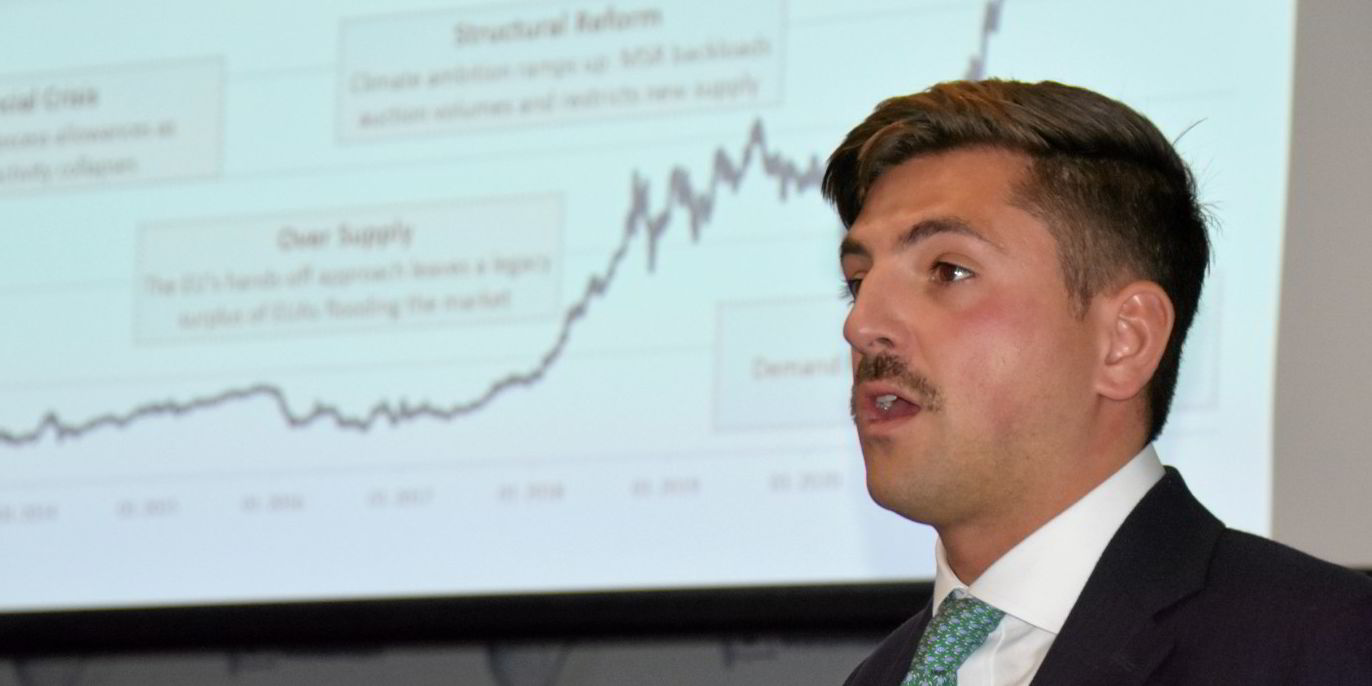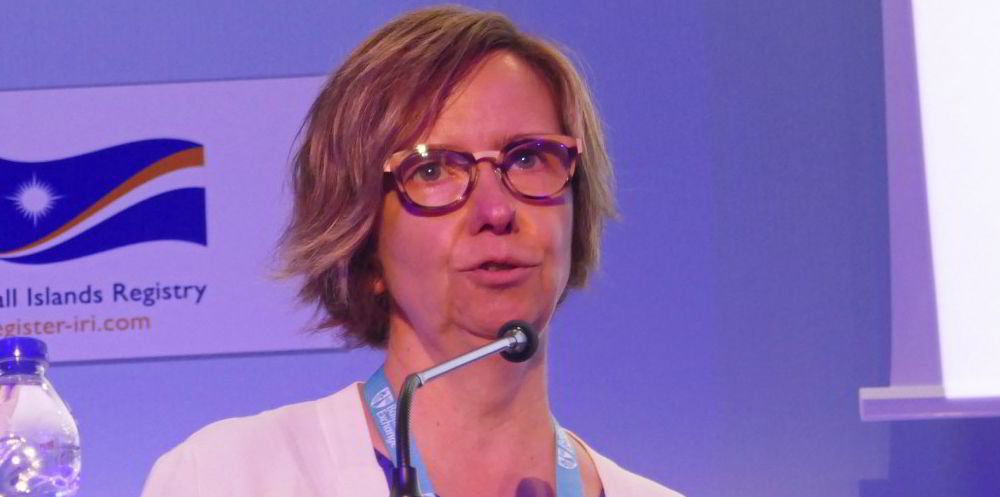Charterers have shown little sympathy to date with shipowners’ pleadings to share the burden on emissions trading, according to the head of carbon trading at shipbroker Affinity Shipping.
Hugo Wilson this week warned Norwegian shipowners and delegates at a Wilhelmsen Ship Management seminar that there is little time left to convince charterers to rewrite charters — either with their own terms or by including the new standard emissions trading system (ETS) allowance clause proposed by shipowner organisation Bimco.
“We’ve seen very few charterers accepting the Bimco clause,” Wilson told delegates. But the need is urgent, he said.
“Conversations with charterers should be started now. If there are any teething problems with the ETS, it’s going to come out of the owners’ pockets, not the charterers.”
Under two rival proposals being discussed within the European Union, the EU ETS could come into force either on 1 January 2023 with a gradual phase-in, or a year later with no phase-in.
“Why not plan for the worst and hope for the best?” he said.
Major charterers such as BP Shipping and Rio Tinto can be expected to use the Bimco ETS and other decarbonisation clauses as they joined the drafting negotiations.
But Wilson told TradeWinds that, at best, a modified version of the Bimco ETS allowance clause had found some acceptance.
“It’s not so much that I’ve seen out and out resistance, we’ve just not seen it adopted in many charterparties. Some people haven’t included any language, some have included only ‘an agreement to agree’.
“Some major North American charterers are willing, and also some dry bulk operators, in particular, have understood that it needs to be done, maybe with the wording slightly changed,” he told TradeWinds.
The Bimco ETS allowance clause, published in May, is one of three decarbonisation-related proposals for standard charter clauses and the simplest to implement, according to Wilson.
A clause for the Energy Efficiency Existing Ship Index (EEXI) regulations was published last December, while the Bimco Carbon Intensity Indicator (CII) clause, the most complex, is delayed at least until late November.
Substantial costs
The EU ETS, when it finally comes into effect, will put the burden on the shipowner, the easiest party to keep track of, and leave it up to the owner to extract the costs from their customer.
The costs will be substantial.
Owners will be assessed 50% of the carbon costs for a trip to a European port from outside the EU, which would amount to a sizeable fraction of the daily hire. In a calculation based on an EU Allowance (EUA) price of €90 ($89), that could come to $3,148 per day for a handysize bulker, $6,152 for a capesize, $3,577 for an MR product tanker and $8,441 for a VLCC.
The European Union ETS will put the burden of paying the levy on the shipowner, the easiest party to keep track of, and leave it up to the owner to extract the costs from his customer.
The costs will be substantial. Owners will be assessed 50% of the carbon costs for a trip to a European port from outside the EU, which would amount to a sizeable fraction of the daily hire.
In a calculation based on an EU emissions allowance price of €90 ($89), that could come to $3,148 a day for a handysize bulker, $6,152 for a capesize bulk carrier, $3,577 for an MR product tanker, $8,441 for a VLCC.
“The EUA price has come off quite a bit and is now around €70 but it’s illustrative,” Wilson said.
Under the Bimco clause, time charterers would purchase credits based on the ship’s emissions during the previous months and transfer them to the owner, who would then surrender them to the EU at the end of each trading year in April.
But not all charterers will be legally eligible or technically capable to trade carbon credits in an EU-regulated market and transfer them to the owner.
That set of problems is likely to affect dry bulk more than tanker trading, especially in the case of smaller charterers outside the European Union.
Meanwhile, Wilson expects one gaping loophole under the ETS scheme to close — the loophole made possible by Brexit.
The EU’s carbon trading rule under which a shipowner pays for only 50% of a ship’s carbon emissions is meant to accommodate other, complementary regional and national systems covering the other end of the journey. But the UK emissions trading regime does not cover international shipping.
This has the unintended consequence that a ship making a voyage from East Asia to Rotterdam could pay a port call at Southampton first, and then be assessed only 50% of its Southampton to Rotterdam leg.
That loophole should close promptly.
“I don’t think the UK would want that to exist, either, because I think eventually the UK will want to rejoin the EU trading system,” he said.




